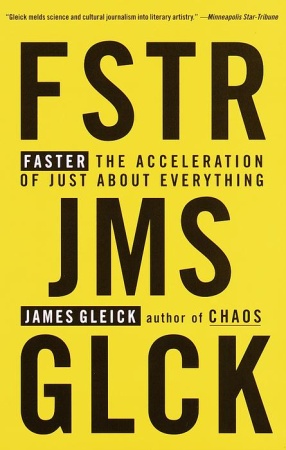Adrian Mackenzie: Transductions: Bodies and Machines at Speed (2002)
Filed under book | Tags: · biotechnology, body, machine, speed, technology, time, transduction

“What do the patented data structures embedded deep in the code of an online computer game or the massively complicated architecture of the latest supercomputer used to simulate nuclear explosions have to do with culture, life or meaning? Why does technology attract such wildly differing responses – from fervour to boredom to distrust?
Transductions explores these questions by drawing on science and technology studies, contemporary critical theory and corporeal theory. An exploration of complex technologies such as online computer games, genomic databases and the global positioning system reveals how the borders between bodies and machines, between what counts as social and what counts as technical, are no less diverse and complicated than culture itself. Indeed, they constitute a crucial dimension of contemporary culture. Through a critical analysis of the widely accepted notion that technology speeds everything up, Transductions argues that there are only ever differences in speed. The question for us now is how can such differences be represented?”
Publisher Continuum, London and New York, 2002
Technologies: Studies in Culture & Theory series
ISBN 082645884X
231 pages
Reviews: Matthew Fuller (Convergence, 2003), Kim Toffoletti (Culture Machine).
PDF (9 MB, updated on 2019-11-20)
See also Fibreculture Journal’s issue on “Trans” (2011) co-edited by Mackenzie.
Comment (0)Robert Hassan: Empires of Speed. Time and the Acceleration of Politics and Society (2009)
Filed under book | Tags: · blogging, cyberculture, democracy, network society, politics, postmodern, social democracy, speed, time

The beginning of the 21st century is witnessing the emergence of a social, political and technological revolution in networked computing. We now live in a networked society, but it functions and develops at such an accelerating rate that it becomes increasingly difficult to adequately understand the nature of this radical society. Empires of Speed is the first book to analyse the far-reaching transformations of speed-filled everyday life. In a compelling study Hassan shows that we are leaving behind a modern world based upon the time of the clock, and are entering a new and volatile phase where an accelerating ‘network time’ poses fundamental economic and political challenges in our postmodern world, challenges we barely comprehend and are thus woefully unprepared for.
Publisher BRILL, 2009
Volume 4 of Supplements to The study of time
ISBN 9004175903, 9789004175907
Length 254 pages
James Gleick: Faster: The Acceleration of Just About Everything (1999)
Filed under book | Tags: · clock, multitasking, speed, television, time

From the bestselling, National Book Award-nominated auhtor of Genius and Chaos, a bracing new work about the accelerating pace of change in today’s world.
Most of us suffer some degree of “hurry sickness.” a malady that has launched us into the “epoch of the nanosecond,” a need-everything-yesterday sphere dominated by cell phones, computers, faxes, and remote controls. Yet for all the hours, minutes, and even seconds being saved, we’re still filling our days to the point that we have no time for such basic human activities as eating, sex, and relating to our families. Written with fresh insight and thorough research, Faster is a wise and witty look at a harried world not likely to slow down anytime.
Publisher Pantheon Books, 1999
ISBN 0679408371, 9780679408376
Length 324 pages
PDF (PDF’d HTML)
PDF (PDF’d HTML)

